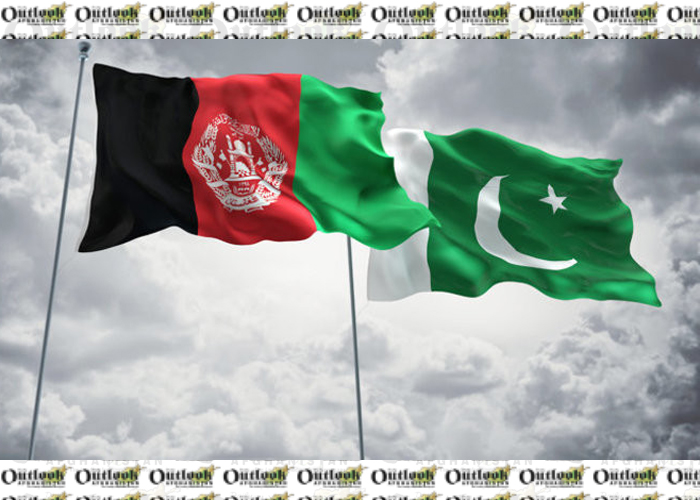On the surface, it seemed that Kabul and Islamabad would cultivate a friendly relations as Afghan-Pak officials had high-level exchanges. But harsh rhetoric and blame game resumed between the two sides. Afghan politicians urge Pakistan to close the Taliban’s councils in Quetta and Peshawar, but Pakistani officials deny harboring or supporting the Taliban outfit, arguing that Islamabad organized the peace talks between the Taliban and the United States.
The Afghan-Pak relations have hit rock bottom and the two sides directly lambast each other in national and international platform. Afghan politicians believe that the Taliban’s Quetta Shura and Peshawar Shura are located in Pakistan and the Taliban’s patients and the wounded are treated in Pakistan’s hospitals.
Earlier, Pakistan’s Interior Minister Sheikh Rashid Ahmad also had confessed that the wounded and dead bodies of the Taliban militants were carried to Pakistan and the wounded receive medical treatment there. He added that the families of the Afghan Taliban lived in Pakistan.
Furthermore, Afghan officials also criticize the repeated travels of the Taliban delegations to Pakistan, saying that the families of a number of Taliban members live there. They argue that the Taliban members are radicalized in religious seminaries in Pakistani soil and sent to Afghanistan to fight against the government.
Nonetheless, Pakistani officials say that the people of Pakistan also sustained heavy casualties as a result of terrorist attacks and Islamabad nudged the Taliban to negotiate with the Trump administration. Pakistani Prime Minister said that Islamabad has lost its leverage on the Taliban group, an indication that it could not push the Taliban to continue talks with the Ghani administration.
The political rhetoric and ifs and buts between Kabul and Islamabad is most likely to push the peace process to an unbreakable stalemate and let the Taliban capitalize on the issue. If the two sides continue the blame game, the security situation will be deteriorated. A hostile attitude, adopted by any of the two states, will be counterproductive.
The allegations and denials will compound the challenges. To resolve the issue, a UN investigation team has to be let into Pakistan to observe impartially if the allegations made by Afghan officials – including the location of Taliban’s councils in Quetta and Peshawar, radicalization of Taliban members in religious seminaries there, and their border-crossing – are credible. If the allegations were proved credible, Pakistan should be committed to backtrack their supports from the group but if not credible, the two sides have to stop the blame game and make an overture.
The statements of Pakistani officials and media indicate that Pakistan fears the spillover of insecurity to its soil as well as the refugee influx. Islamabad has showed its concerns in this regard on multiple occasions. If it is so, both Afghanistan and Pakistan have to act against the Taliban and other terrorist networks. If the Taliban find no sanctuary in Afghanistan and Pakistan, they will have no option other than returning to the negotiating table.
Pakistan’s concerns over the spillover of violence in its territory shows that Pakistani officials fear the violent practices of the Taliban group, which has not changed at all as it is acting the same as 1990s. Hence, it will be a common threat to Afghanistan and Pakistan and both sides should fight against the group. If Islamabad is unwilling to fight the Taliban and their affiliates, it has to push the group to resume negotiations with the Afghan government and declare ceasefire.
No states, including Pakistan, is willing to have a close diplomatic tie with an “Islamic Emirate” in Afghanistan. The Taliban’s practices are unpredictable. A democratic Afghanistan will be far better than an Islamic Emirate and Afghanistan’s international allies also prefer the country with democratic values with constitutional principles.
Meanwhile, the ordinary people of Afghanistan, including men and women, are not ready to backtrack after paying heavy sacrifices in support of democracy and human rights. The violation of human rights and not abiding by the Universal Declaration of Human Rights will not be acceptable to the United Nations, either. Therefore, Afghanistan’s neighboring states and international allies and the UN have to put all their weight behind the negotiated settlement.
The blame game will lead to horrible consequences. Kabul and Islamabad have to adopt a joint strategy in ending the common threat and push the Taliban to stop violence and bloodshed and negotiate with sincere intention. Meanwhile, Afghanistan’s international allies and the US, which “gave legitimacy to the Taliban” through striking a peace deal, have to press the Taliban to stop violence and seek a negotiated settlement.
Home » Opinion » Blame Game Will be Counterproductive
Blame Game Will be Counterproductive
|

